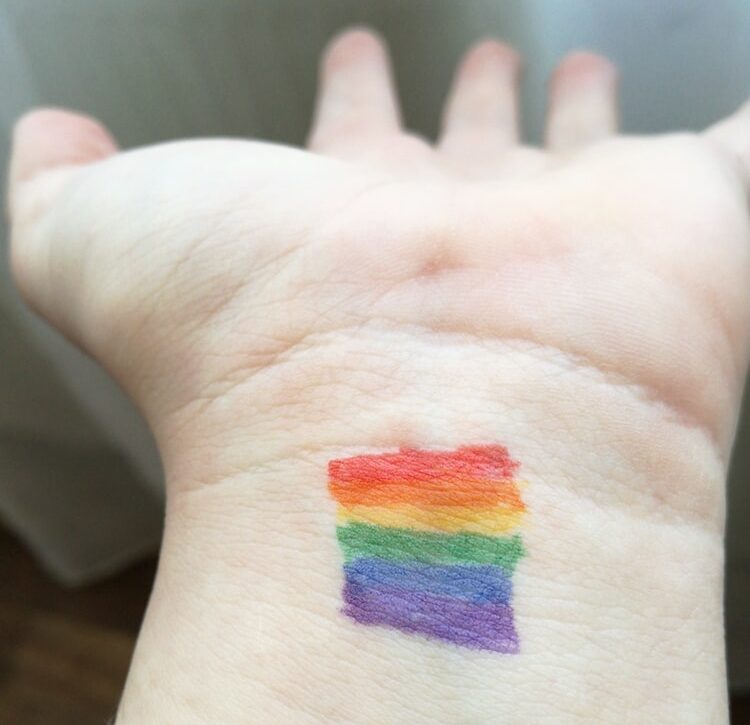CAMPAIGN FOR CHANGE

Queer Interview: Narrative of how has life been and challenges that came across
By Vidhi Singh
This is a conversation wherein the respondent has expressed ideas about exploring intersectionality and challenges faced while accepting one’s identity. Verbal consent was taken before recording information in a written format. Respondent has allowed posting the details anonymously.
Vidhi (V)– What are your views on gender /intersectionality?
Respondent(R) – Umm. It’s difficult to define a particular definition around the same. Sexuality is a lot more complex than it seems. Sometimes you view it as physical attractions and otherwise as romantic attractions which are two very different feelings. I identify as Queer which would be my sexual identity. On the gender spectrum, I am non-binary.
V- How did you explore at arriving at this conclusion?
R- I remember as a child I was bullied for not behaving like a girl or being dressed up. I used to dress up differently. So this exploring one’s identity is not a one step process. One keeps on getting and feeling it throughout the journey. I happen to arrive at being genderqueer during my trip to India in 2018. And it has been very recently that I came out to my family and friends on social media . Only my very close friends knew this earlier. I came out within family in June 2020 and on social media in September 2020.
To be coming out is itself an ongoing process. Like every time you meet a person, you have to have that courage to come out. So the process never stops.
V- How do you make sure to introduce yourself in front of people?
R- I usually greet them and choose to tell my preferred pronouns to make the environment comfortable between us.
V- What were some of the challenges that you faced while you decided to come out?
R- My constant struggle was to make my parents understand. They only happen to see gender in binary terms. This annoys me. Although I had dropped many hints in my actions throughout the years it seems they didn’t get it. There are still instances where my mom prefers to call me “my girl” which irritates me at times but I have now accepted it. I just take it now.
Another thing that makes her difficult to accept is the societal norms that we are expected to follow. According to the norm people are of the notion that if people are gay they move to the city. Over here in Ontario , I happen to live in Brant and I belong to the agricultural community. They say that Pride in Agriculture doesn’t exist.
V- I completely understand how difficult it must have been going through these thoughts constantly.
V- When were you exposed to more information about these topics? Over here in India to be honest I came across these in university. School environment didn’t provide a space t explore these.
R- Umm I remember in my High School we had this LGBTQ club and I used to attend the sessions and took part in activities. But since I was afraid to come out and also felt emotionally repressed I gave a justification like I am an ally of the club and that is how I associated with the club activities. I couldn’t freely express myself back then.
I went to York University in Toronto, my best friend happens to be a transgender . We happened to have the best moments in university where I met many different people and exposed to new ideas around gender and intersectionality. I also explored information on Instagram and social media where things like ‘pride in agriculture’ are normalized.
V- How do you feel now?
R- I was just tired of going through the thought process of explaining myself on and off to people and then I decided to come out through a Facebook post. I had faced trauma growing up and was bullied but today I guess I have overcome that trauma.
V- That’s what makes you who you are as a person.
Everyone is unique in their ways. What do have to say about how society takes such things and to people who are still facing the ongoing struggle /fear?
R- I feel society, in general, has come a long way. But I feel even if the society has become much more accepting of the LGBTQAI+ community, people will still face difficulty in coming out. The older they become the deeper the trauma is and the more time it takes to understand and initiate the healing process.
V- Well. Thank you so much for courageously expressing your views and story. It was an insightful discussion. I hope you continue to win the everyday process of living life to the fullest on your terms.
R- Thank you!
